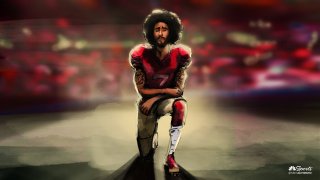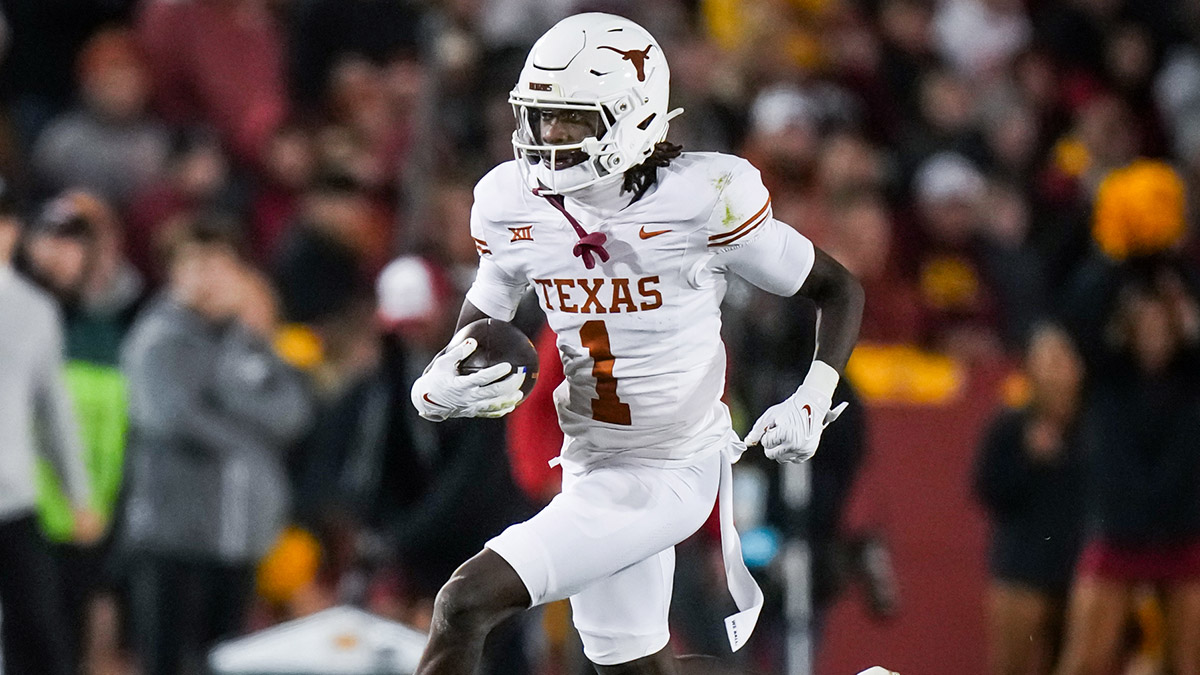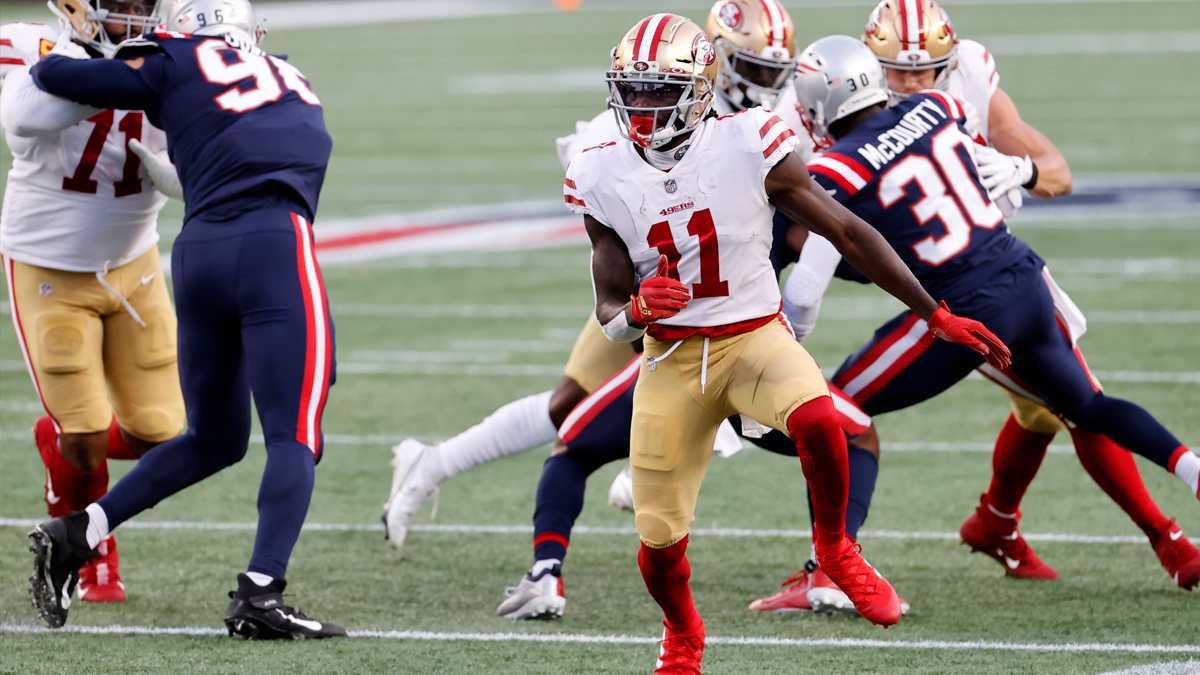
Exactly 57 years have passed since Rev. Martin Luther King Jr. delivered his soaring “I Have a Dream” speech, and we have seen incremental progress in race relations but nary a scratch on the monolithic body of systemic racism.
It lives on at every level of American society and that includes sports, which many mistakenly believe is immune.
The notion of sports as a meritocracy, with employment opportunities and advancement based strictly on ability and character, rather than principles and pigmentation, is and always has been a myth. Satchel Paige posted a 2.48 earned-run average in his rookie year. Inasmuch as he was 42 years old, it’s logical to assume he might have done OK if invited earlier.
Stay in the game with the latest updates on your beloved Bay Area and California sports teams! Sign up here for our All Access Daily newsletter.
Here we are, three generations after Satchel’s debut, still chasing the dream of equality. And still using sports as a primary means to measure collective racial progress, the most famous benchmark coming in 1947, when Jackie Robinson took the field for the Brooklyn Dodgers.
There was, for a few hours Wednesday, an opportunity for sports to make its most dramatic statement of the 21st century. Disgusted with challenges unique to Black Americans, the latest tragic example being the shooting of Jacob Blake by police officers in Wisconsin, a few NBA players talked of walking out on the playoffs and at a chance to become a champion.
Going dark on the biggest stage would have been a mind-blowing flex, a statement of epic proportions at a time when bold action speaks loudest.
The players eventually decided, by majority rule, to return to work. The Milwaukee Bucks, whose decision to cancel their game Wednesday prompted players on other playoff teams to also step away, plan to be back on the court this weekend, along with other NBA playoff teams.
San Francisco 49ers
So, did the players fail in their mission? Too soon to know. But NBA commissioner Adam Silver and the NBA Players Association on Friday released a joint statement with a multifaceted plan to tangibly addresses racial injustice. Included is advocacy for police/criminal justice reform and improved voting access. Already in motion is the designation of numerous NBA arenas, including the Warriors’ Chase Center, to be utilized as part of the voting process in the Nov. 3 election.
RELATED: Roger Goodell apologizes to Colin Kaepernick, wishes NFL had listened
A newly formed Social Justice Coalition – with players, coaches and team governors – will be responsible for leading the effort. It’s evident, and significant, that players are demanding league governors, all of whom have a measure of wealth and influence, to wield that power in the fight for racial equality.
There may be no immediate visible impact, but for the most part these are long-term projects.
NBA and WNBA players already have succeeded in one respect. Their activism persuaded hundreds of other North American athletes to take a stand. Tennis star Naomi Osaka on Thursday forced a one-day delay of a semifinals match; she returned on Friday. Players representing other major sports – MLB, MLS, NHL – walked out, forcing cancellations in all three sports. At least nine NFL teams canceled practice on Thursday.
Such a pause is not a movement, by definition, but there is movement.
RELATED: Charles Woodson, Nate Boyer want Colin Kaepernick's kneeling understood
By taking a resolute stand, even for a day or two or three, a league that is 80-percent Black compelled players in other leagues, most of which have vastly different demographics, to make a choice: Identify with systemic change, or remain aligned with America’s four-century tradition of racial injustice, which is a manifestation of White Supremacy.
Who in 2020, with the exception of right-wing extremists, proudly wears a badge signifying Option 2? No one. It’s bad for business.
Consider: MLB on Friday will celebrate Robinson’s legacy. It’s an annual event, normally on April 15, the anniversary of Jackie’s 1947 debut, that was postponed due to the coronavirus pandemic. That this custom began in 2004 and MLB still lacks a significant Black presence makes its own statement about action vs. symbolism.
The NFL, along with its Players’ Association, and many of its teams issued statements Thursday, some on paper, others on video, expressing allegiance to racial justice, with some mentioning Breonna Taylor and Blake by name.
How seriously can anyone take the NFL’s efforts as long as Colin Kaepernick remains blackballed? The same banishment now applies to his brother in the cause, Eric Reid. Until the league is sincere about treating and healing that wound, it’s all pretense. Fakery.
RELATED: Klay Thompson outraged by alleged Tiburon police racial profiling incident
Team statements and supportive slogans painted on a basketball court or baseball diamond or, dare we say, an NFL field, never would be enough. Nor would T-shirts and messages on the backs of NBA jerseys. These are all league-approved allowances.
None of these gestures were meant to attack systemic racism. They do, perhaps inadvertently, illustrate the righteousness of the decision Kaepernick made in 2016, when he staged a solemn, peaceful protest of this country’s discriminatory practices.
As others were villainizing his message, those seeking the truth always knew what Kaepernick wanted. Nothing more than what John Brown and Frederick Douglass sought nearly two centuries ago. Nothing more than what Malcolm X and Dr. King and Muhammad Ali chased with a vengeance in the 1960s and ‘70s. To be afforded the same rights as their white brothers.
All these years later, thousands of instances of gross racism tell us Dr. King’s dream remains elusive. Athletes, however, are ready to arrange a crusade in search of it.


